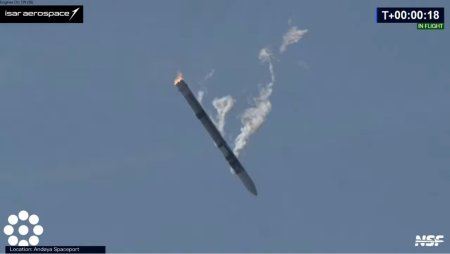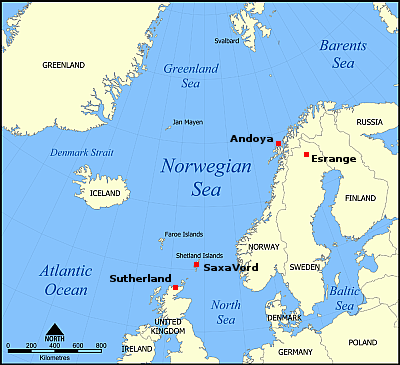German rocket startup Isar gets launch contract from ESA
The German rocket startup Isar Aerospace yesterday announced it has won a launch contract from the European Space Agency (ESA) to place a satellite carrying a number of experimental payloads into orbit before the end of 2026.
Satellite launch service company Isar Aerospace has signed a contract with the European Space Agency (ESA) to launch the ΣYNDEO-3 mission under the European Union’s In-Orbit Demonstration and In-Orbit Validation Programme (IOD/IOV). The launch will be carried out from Isar Aerospace’s dedicated launch complex at Andøya Space in Norway from Q4 2026.
…Redwire is the prime contractor for the ΣYNDEO-3 mission and will be delivering its Hammerhead spacecraft for a launch onboard Isar Aerospace’s launch vehicle Spectrum to a low Earth orbit (LEO). The spacecraft was built and integrated at Redwire’s state-of-the-art satellite processing facility in Belgium. The spacecraft aggregates 10 innovative payloads from six countries and institutions: Spain, France, Germany, Italy, Luxembourg and the EC.
Isar has yet to reach orbit with its Spectrum rocket. The first launch failed in March only seconds after launch. A second attempt is presently scheduled for sometime prior to December 21, 2025, lifting off from Andoya.
This is the second new launch contract Isar has announced in the past two weeks, and the third since September. At the moment it appears it is gaining momentum pending that first launch later this month, especially because a successful December launch would make it the first European rocket startup to successfully reach orbit.
The German rocket startup Isar Aerospace yesterday announced it has won a launch contract from the European Space Agency (ESA) to place a satellite carrying a number of experimental payloads into orbit before the end of 2026.
Satellite launch service company Isar Aerospace has signed a contract with the European Space Agency (ESA) to launch the ΣYNDEO-3 mission under the European Union’s In-Orbit Demonstration and In-Orbit Validation Programme (IOD/IOV). The launch will be carried out from Isar Aerospace’s dedicated launch complex at Andøya Space in Norway from Q4 2026.
…Redwire is the prime contractor for the ΣYNDEO-3 mission and will be delivering its Hammerhead spacecraft for a launch onboard Isar Aerospace’s launch vehicle Spectrum to a low Earth orbit (LEO). The spacecraft was built and integrated at Redwire’s state-of-the-art satellite processing facility in Belgium. The spacecraft aggregates 10 innovative payloads from six countries and institutions: Spain, France, Germany, Italy, Luxembourg and the EC.
Isar has yet to reach orbit with its Spectrum rocket. The first launch failed in March only seconds after launch. A second attempt is presently scheduled for sometime prior to December 21, 2025, lifting off from Andoya.
This is the second new launch contract Isar has announced in the past two weeks, and the third since September. At the moment it appears it is gaining momentum pending that first launch later this month, especially because a successful December launch would make it the first European rocket startup to successfully reach orbit.


